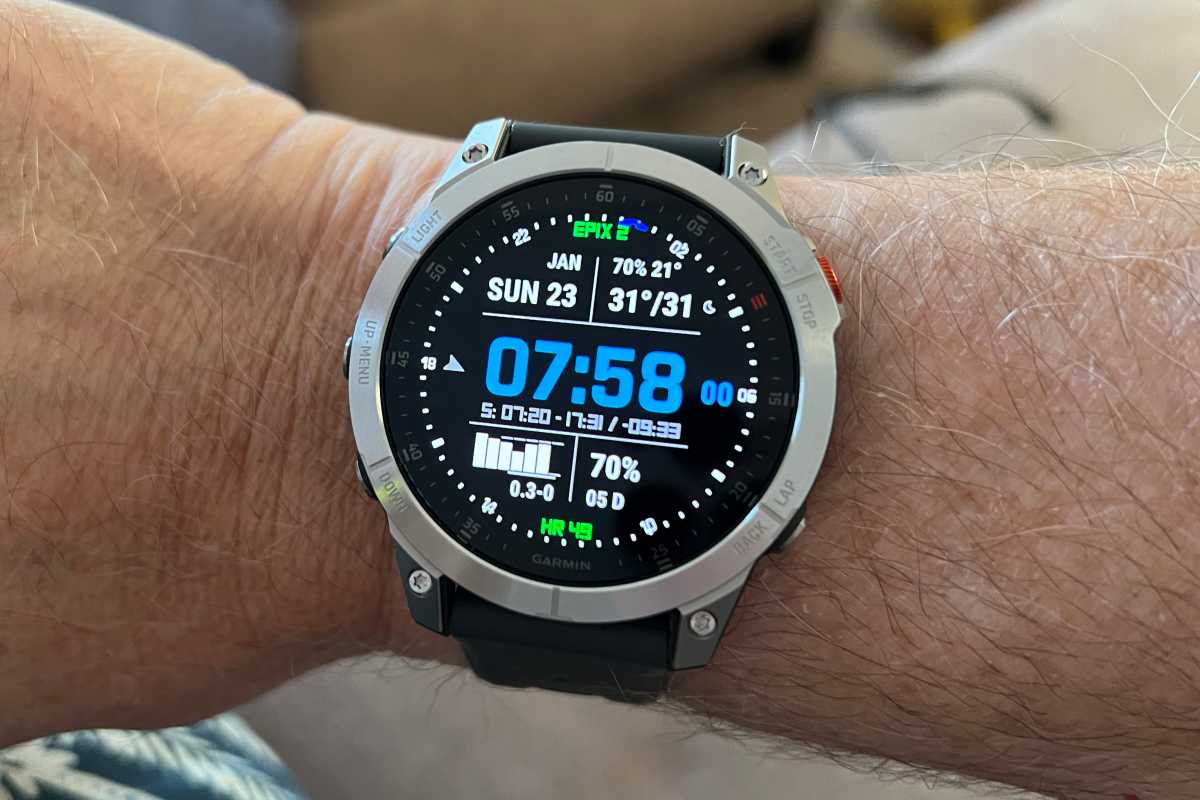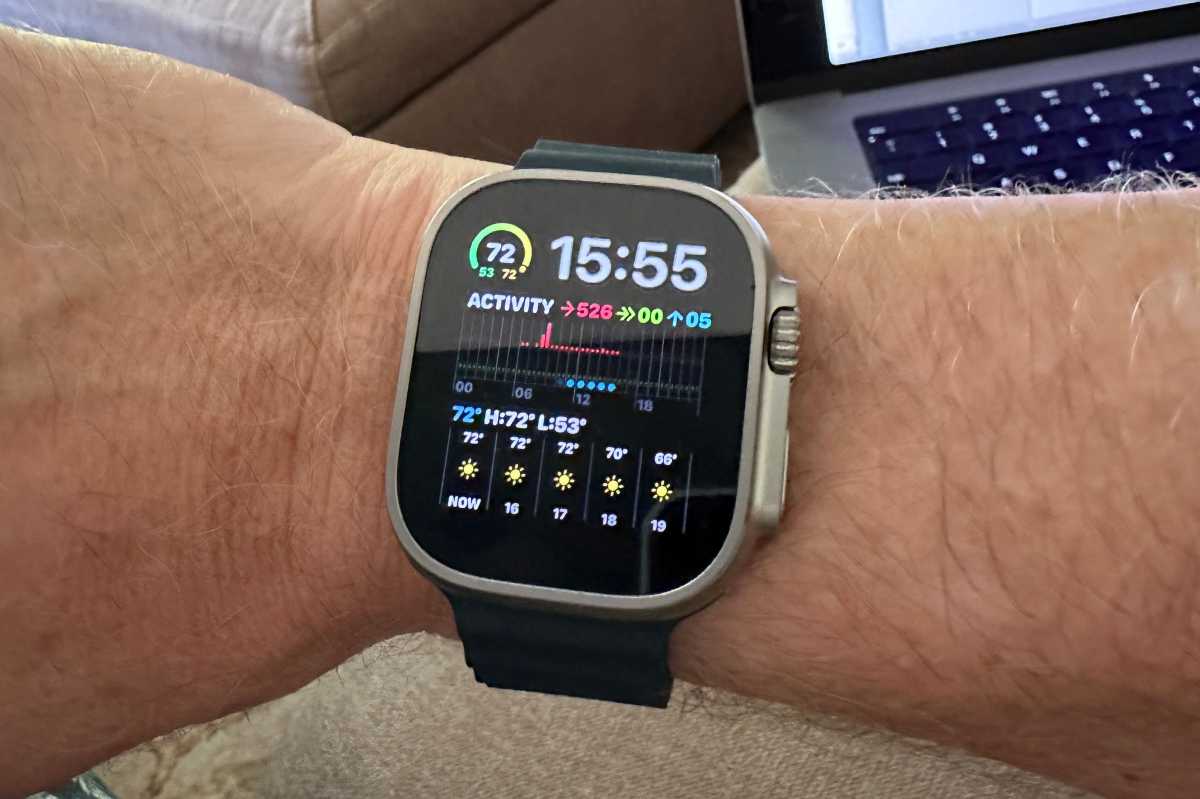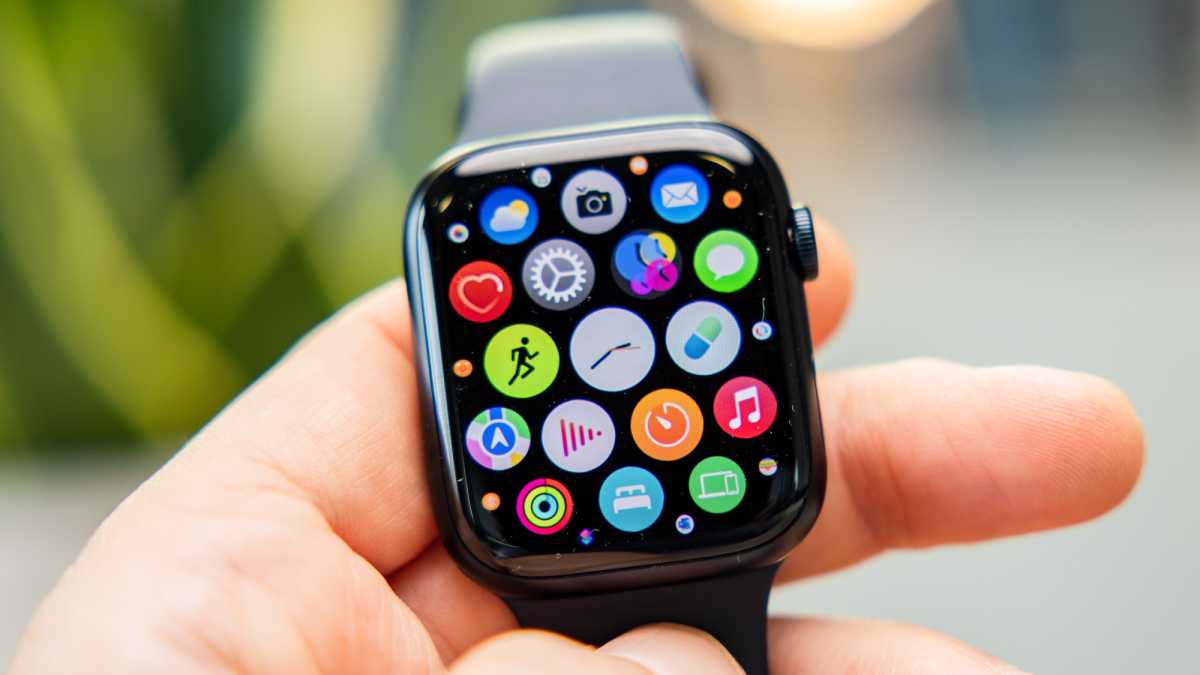The Apple Watch Ultra was designed and built with someone like me in mind. I have an iPhone 14 Pro Max, a 16-inch M1 Pro MacBook Pro with a Studio Display, three Apple TV 4K boxes, and a 12.9-inch iPad Pro with a Magic Keyboard. n other words, I’m deeply embedded in the Apple ecosystem—but on my wrist I alternate between two Garmin smartwatches—an older Tactix Delta and an Epix Gen. 2.
I tried the Apple Watch back when it launched in 2015 but haven’t worn one in many years, mainly because I wanted something larger that lasts longer and is more fitness focused. Whenever a new Apple Watch model arrives I debate the pros and cons, but Garmin always wins—in a nutshell, I like big and clunky watches, and to me, even the 45mm Apple Watch Series 7 always felt a little too delicate and small, more of a fashion statement than a fitness tool.
Compared to previous Apple Watches, Garmin watches are very clearly built for dedicated athletes. In addition to the design and build quality, they deliver on battery life claims (days stretching to weeks, depending on GPS use and battery saving tweaks) and deliver a torrent of data on everything from fitness to sleep to stress to calories. And they generally last for many years.
The 51mm Tactix Delta has gone to the gym with me every day, been along for hikes and walks, and is so rugged I could probably use it as a hammer. The battery lasts for days and days and all that data really enables me to track my fitness. When I’m not at the gym, I wear the epix Gen. 2, which has a gorgeous AMOLED display and feels like more of a casual smartwatch but is still big, rugged, and lasts for weeks in battery saver mode.
Like the rest of my Apple gear, neither of my Garmin watches was cheap. The epix starts at $900 and the Delta was even costlier when new — both more than the $799 Apple Watch Ultra. So when Apple unveiled the larger, rugged Apple Watch Ultra at a lower price than either of my Garmin watches, I was instantly intrigued. As soon as the Ultra was announced, I ordered one.
Outweighing the cons
Garmin has long used transflective memory-in-pixel (MIP) displays that are excellent outdoors but less so inside — though the backlight works well enough to easily see what’s on the screen. To my eyes, MIP doesn’t compare to the Apple Watch’s LTPO OLED screen, which is where the newer epix comes in. The epix Gen. 2 brings the best of both worlds to Garmin’s lineup—fitness, tech, and fashion—and even with the always-on display always on, you can easily get about a week between charges.

My Garmin Tactix is big, rugged, and perfect for my wrist.
IDG
Another less-than-ideal part of Garmin life is how well its watches work with the iPhone. In general, the Garmin Connect and Garmin ConnectIQ apps play well between the two ecosystems, but you can’t do as many things with a Garmin watch as you can with an Apple Watch. You can’t make phone calls or responding to messages directly from the watch, you don’t get access to Apple’s deep library of apps, and it doesn’t integrate quite so seamlessly with Apple Health. (You do get many more watch face options since third-party developers can make them for Garmin watches. This is a big plus for me.)
With the arrival of the Ultra, more than a few instant debates broke out online about whether the it goes far enough to even be considered in the same breath as Garmin devices. Garmin even joined the debate, firing off a tweet soon after the Ultra was unveiled that boasted: “We measure battery life in months. Not hours.”
If features like super-long battery life and built-in maps are what you’re looking for, the Apple Watch Ultra won’t be for you. The Ultra doesn’t quite match the array of outdoor features offered by the Tactix and epix —though given how quickly Apple iterates its products, my hunch is that it will rapidly close the gap.
The Apple way
I’ve quickly found out that Apple has come a long way in terms of the fitness and health data it now delivers with watchOS. It delivers data that’s nearly as comprehensive as I get from Garmin, so much so that it’s going to take me a while to figure out how best to use it. Setting up my new Apple Watch was a bit more complicated than it used to be, largely because there’s so much more it does now. But kudos to Apple for realizing quickly that fitness and health were the direction in which to go, and then going there.

The Apple Watch Ultra still looks like an Apple Watch, but its big screen and rugged exterior give it a uniue character.
IDG
To be clear, I won’t be using my Apple Watch Ultra for cross-desert races or diving 20,000 leagues under sea. Compared to those athletes, I’m a poseur. We’re talking about daily gym visits, daily dog walks, weekend hikes, and occasional bike rides. As a result, the promised 36 hours of battery life is fine, especially since I can now do sleep tracking with ease. In real-world use, in fact, I got much better than 36 hours. Even with several workouts over the past couple of days, I blew past 48 hours—and that’s without low-power mode and before the Ultra’s battery optimization feature arrives.
I know the Ultra and its raw titanium design has come under fire for being a bit homely, but I disagree. It’s different, yes, but in a good way. It’s big and rectangular, and doesn’t hide easily under long sleeves, but its rugged, industrial aesthetic is clearly aimed at Garmin users and should appeal to Apple fans. It’s still an Apple Watch, but it feels like a tough wearable rather than a dainty smartwatch.
But where Garmin can’t compete is the Apple ecosystem. I’ve only had my Ultra for a few days now, but I can say it’s definitely good to have an Apple Watch back on my wrist. As usual, it’s little things Apple does that matter, like when my MacBook Pro locks when I walk away and unlocks when I return. Or the simple ease of responding to a message without having to grab my Pro Max out of my pocket to reply.

The Apple Watch Series 8 was never my kind of watch, but the Ultra is a different animal.
Dominik Tomaszewski / Foundry
For the foreseeable future, I’ll be rocking the Ultra. But I’m keeping my Garmins, too. They’re still incredibly well-built, rugged devices that—mainly for the aesthetics of changing things up once in a while—I may well slap in my wrist for a day (or several).
If Apple ever comes out with a 52mm Apple Watch Ultra Max with seven days of battery life, I’ll be the first person in line. But for now, it’s going to be hard to pry the Ultra from my wrist. It’s big enough, featured enough, and lasts long enough to check all the boxes that my Garmin did. And I don’t think I’m the only one.



